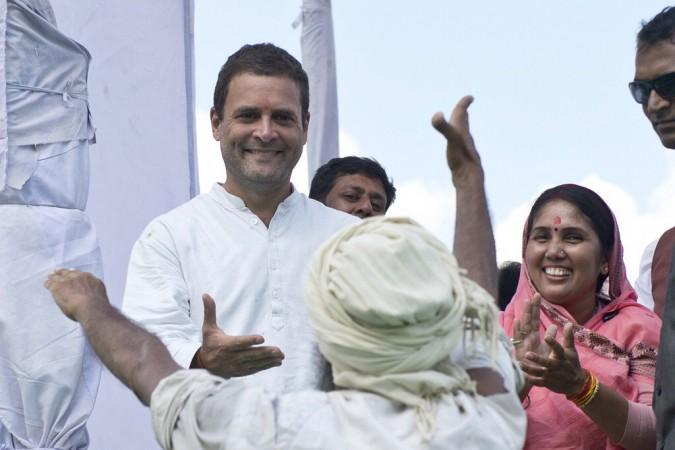
Rahul Gandhi on Monday got unanimous support from the Congress Working Committee (CWC) to take over as the president of the Congress from his mother and current president Sonia Gandhi. The move could probably lead to the most-anticipated change at the upper echelons of the political party.
At the CWC meeting held on Monday, which Rahul chaired in the absence of his month Sonia, Congress veteran AK Antony apparently first suggested that the party vice-president be given the much-awaited elevation in rank, and the other members unanimously agreed to it.
The rationale behind the decision
Speaking to reporters after the meeting on Monday, Congress spokesperson Randeep Singh Surjewala said: "The CWC was of the view that Rahul Gandhi must take over presidency of the Congress party. It's high time the Congress mobilises all its forces to fight against the dictatorial rule of the Narendra Modi government."
Antony, who was also present at the press-briefing, said: "It was the first time that this sentiment was strongly and unanimously expressed. The final decision on this has to be that of the party president."
Surjewala went on to add, referring to Rahul by his current position in the party: "The Cong vice-president was present at the CWC meeting. He said whatever the Congress party and the committee decides, he would be ready to take up the challenge." He also said: "Rahul Gandhi said he wants to fight for the idea of India, and whatever the party and its workers decide he will abide by it."
Why another Gandhi
The Congress, although not founded by Mahatma Gandhi, was led by him for quite some time, and both names are inexorably linked to each other when one talks of India's Independence. Also, given Mahatama Gandhi's stature — he is not known as Father of the Nation for nothing — it is only obvious that the Congress choose another person carrying his surname to lead the party.
After the assassination of Prime Minister Rajiv Gandhi in 1991, the party had tried to go the distance without a Gandhi at its helm. And it seemed to be doing well, with PV Narasimha Rao going full term as the next prime minister till 1996.
However, the party stumbled after that, not being able to muster enough numbers to return to power at the Centre for quite some time, and even managed its lowest tally at that time in the 1998 general elections. That was when they decided and managed to bring in Sonia Gandhi, who had earlier refused to enter politics.
However, her induction did not yield immediate results, and the Congress tally dropped further to 114 in 1999, when the BJP-led NDA government came to power and Atal Bihari Vajpayee became prime minister. All that changed in 2004, when the Congress, under Sonia Gandhi, romped home to vistory and formed an alliance government in 2004, and repeated that success in 20098, validating the party's decision to appoint her as its president.
It is this success that the Congress looks to repeat with the appointment of Rahul Gandhi as its president. It could also come as some relief for Sonia Gandhi, who has not been keeping well.





!['Lip lock, pressure, pyaar': Vidya Balan- Pratik Gandhi shine in non-judgmental infidelity romcom Do Aur Do Pyaar [ Review]](https://data1.ibtimes.co.in/en/full/797104/lip-lock-pressure-pyaar-vidya-balan-pratik-gandhi-shine-non-judgmental-infidelity-romcom.jpg?w=220&h=138)







